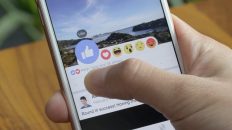 The issue of fake profiles has become disconcerting and discomforting for Facebook after a BBC investigation that suggests many companies might be wasting their precious resources on adverts, to draw ‘likes’ from the site members with no apparent interest in their services or products. It seems many of the account holders who happen to click on the links have even lied about their personal data. The social networking site claimed it had ‘no evidence of any significant problem’.
The issue of fake profiles has become disconcerting and discomforting for Facebook after a BBC investigation that suggests many companies might be wasting their precious resources on adverts, to draw ‘likes’ from the site members with no apparent interest in their services or products. It seems many of the account holders who happen to click on the links have even lied about their personal data. The social networking site claimed it had ‘no evidence of any significant problem’.
Face value of ‘likes’
A spokesman for the network noted: “We do not see any evidence of a ‘wave of likes’ coming from ‘obsessive clickers’ or fake users.” In the first place, why ‘Likes’ are highly valued by marketing departments of many top brands? Once a Facebook user clicks on a link the company it belongs to, can post on their news feed, send them messages as well as alert their friends to that connection. The site makes money in the process by charging companies a fixed sum to display adverts designed to draw new ‘likes’.
Most of its revenue is generated from advertising and obviously its performance will be closely scrutinized when its financial results are released later this month – the first report since its IPO.
54 million fake user profiles
Facebook had revealed earlier this year that about 5-6 percent of its more than 900 million users might actually be fake – accounting for up to 54 million user profiles. Graham Cluley, associated with the security firm Sophos asserted that it was a major problem area. He added: “Spammers and malware authors can easily mass-produce false Facebook profiles so as to spread dangerous links as well as spam, and then trick users into befriending them.”
Some of these ‘fake’ accounts are run by smart computer software with someone puppeteering countless such profiles handing out quick commands, such as: ‘like’ as many (pages) as you can to create a large community.
Real worth of Facebook advertising campaigns
A social media marketing expert, Michael Tinmouth, has conducted regular Facebook advertising campaigns for many small businesses, including an executive coach and a luxury goods firm. Initially, his clients were quite pleased with the outcome. But they gradually became concerned after evaluating who had actually clicked on these adverts. While they had been keenly targeting Facebook users world over, all their ‘likes’ seemed to be coming from places not of their interest.
Mr Tinmouth mentioned that a number of profiles that had names and details, all seemingly made up. He said, “They were all 13 to 17 years old, with highly suspicious profile names. When we dug deeper, many of these were liking 3,000 to 5,000 pages.” One by the name Agung Sevenfoldism, showed his year of birth as 1997 and stated he had been a manager in 2010 at Chevron.
An experiment carried out by the BBC confirmed this probably was not a one-off issue. It made a Facebook page for a made-up company, VirtualBagel, with no products. And the ‘likes’ it got from the Philippines and Egypt was out of proportion to countries targeted like the US and UK.
Facebook is trying to monitor, segregate and shut these down. However, it can be tough to separate real accounts from fake ones. Mr Cluley felt it was in the social sites’s interest to try and downplay the problem, adding: “They are making money each time a business’s advert happens to lead to a phoney Facebook fan.”




